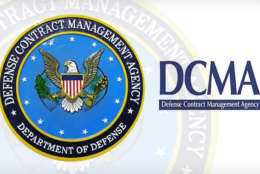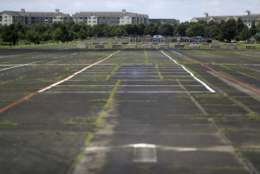Defense
-
In today's Federal Newscast: A soldier has been sentenced to 42 months in prison for $3 million in PPP loan fraud. New recommendations are out on how to collect sexual orientation and gender-identity data. And the clock is ticking on your chance to donate to the Combined Federal Campaign.
January 13, 2023 -
Percipient.AI alleges NGA and prime contractor CACI are ignoring a law requiring agencies to buy commercially available products.
January 13, 2023 -
The U.S. has now collected 510 reports of unidentified flying objects, many of which are flying in sensitive military airspace. That's according to a declassified intelligence report summary released Thursday.
January 13, 2023 -
Goodies keep surfacing in the nearly 4,000-page National Defense Authorization Act.
January 12, 2023 -
The Naval Surface Warfare Center Dalhgren Division, like other defense units, seeks to bring new industrial capabilities quickly to benefit the mission. Now it has entered into a new other-transaction-agreement, or OTA, to do just that. OTAs in the right circumstances let agencies speed up acquisitions, often non-competitive ones.
January 11, 2023 -
Fighter plans and attack planes are known as tactical aircraft. The armed services have a lot of them, mostly old. So old, most of them are past their services lives. Yet they are still in the inventory and the Defense Department wants to spend a hundred billion dollars to refresh the fleet. The Government Accountability Office finds, DoD needs more detailed analysis before proceeding.
January 11, 2023 -
The Pentagon has formally dropped its COVID-19 vaccination mandate, but a new memo signed by Defense Secretary Lloyd Austin also gives commanders some discretion in how or whether to deploy troops who are not vaccinated.
January 10, 2023 -
Lauren Knausenberger, the Air Force’s chief information officer, said despite protest delays, the service is taking steps to prepare for the future enterprise IT-as-a-service approach.
January 10, 2023 -
A procurement management review helps defense agencies develop better systems for handling contract paperwork.
January 09, 2023 -
The past two years have catalyzed a fundamental shift in the way that government organizations need to think about security. COVID-19 introduced the need to securely enable remote work, an ongoing ransomware epidemic shows no signs of slowing down, and the Russian-Ukrainian conflict has stoked concerns of nation state attacks.
January 06, 2023 -
In today's Federal Newscast: DoD reveals the name-change recommendations for nine Army bases. AFGE says that inmate sex incidents are creating stress-induced illnesses for federal prison guards. And private debt collectors hired by the IRS get mixed reviews.
January 06, 2023 -
Raj Iyer has been the Army’s chief information officer November 2020 and has focused on 13 lines of effort to modernize technology and change the culture.
January 05, 2023 -
Congress looks to DoD for more improvements to privatized military housing, and asks for more reports and oversight.
January 04, 2023 -
In today's Federal Newscast: Military academy superstar athletes can no longer turn pro immediately after graduation. OPM reminds agencies that there are rules about putting political appointees into civil service jobs. And the State Department gets aggressive searching for its next generation of IT workers.
January 03, 2023 -
Like much of the legislation enacted in the past couple of years, the National Defense Authorization Act has something for everybody. That includes the nation's federal and military firefighters.
December 30, 2022
















